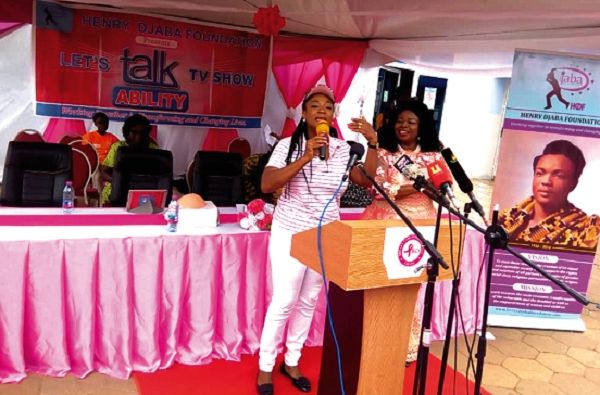
Otiko Djaba unveils programme for breast cancer survivors
A former Minister of Gender, Children and Social Protection, Ms Otiko Afisa Djaba, has unveiled a partnership programme with the Microfinance and Small Loan Centre (MASLOC) to offer financial assistance to survivors of breast cancer to empower them economically.
Operating under the Henry Djaba Foundation, which the former minister named after her father, the scheme seeks to rehabilitate survivors of the deadly condition so that they could return to normal economic life and health.
The Foundation is currently accepting proposals from survivors to facilitate a loan process from MASLOC for such women to usher them into productive economic lives again.
The Foundation is a gender and disability-based organisation established with a core mission of working towards a socio-economic transformation of the vulnerable and disabled as well as the empowerment of women and children.
Seed money
Ms Djaba said she was also in talks with the Ministry of Business Development to access a GH¢2 million seed money set aside to support 1,000 women entrepreneurs with disability, including breast cancer survivors.
Under the arrangement, the survivors will pay half of the amount on the interest-free loans meant to 'bring back their lives'.
Ms Djaba broke the news to over 1,000 breasts cancer survivors in Kumasi during a programme jointly organised with Breast Care International and the Peace and Love Hospital, dubbed ‘Let's talk ability’.
The survivors, who had already formed the 'Peace and Love Survivors Association', were expected to play key roles in the “remoulding process of the lives of other survivors through regular television programmes,” the former minister said.
Philanthropists
Ms Djaba urged philanthropists and well wishers to support the project through the Henry Djaba Foundation to breathe new life into breast cancer survivors.
The CEO of Peace and Love Hospital and President of Breast Care International, Dr Beatrice Wiafe Addai, bemoaned the lack of a social support system to cater for breast cancer patients and survivors since they were not covered under the National Health Insurance Scheme.
She said most of the women had become poor after spending all their monies on treatment bills, including surgery, transportation, feeding and other auxiliary needs.
Dr Addai, who is also the chairperson of the Ghana Cancer Board, said post-surgery treatment, including check-ups, physiotherapy and mammogram treatment, were crucial to the continuous survival of the patients, and required financial assistance.
Counselling
A clinical psychologist and counsellor of the Kwame Nkrumah University of Science and Technology (KNUST), Mrs Bernice Ofosuhene Peasah, encouraged survivors to seek counselling from professionals and stop blaming themselves for what they had gone through.
